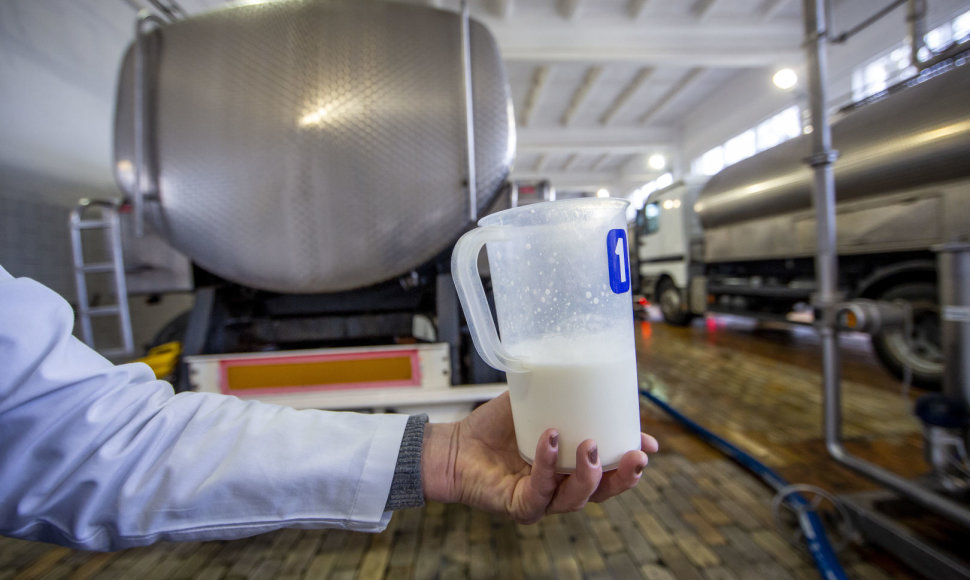They propose to postpone all excess control actions to after the quarantine and test all, not just imported milk.
According to the Lithuanian dairy manufacturers’ association Pieno Centras head Egidijus Simonis, the country’s largest dairy manufacturing companies have received information from the State Food and Veterinary Service that on March 30-31, they will be visited by inspectors and will take samples of exclusively milk imported from the neighbouring Baltic States for non-scheduled laboratory testing.
At the moment, the companies themselves are performing laboratory testing of all milk shipments.
“There emerges a real threat that excess testing can be exploited to bar milk imports from Latvia and Estonia. This would collapse not only the manufacturing industry in Lithuania but the entirety of the dairy sector, also the farms producing milk. A part of manufacturing companies would have to shut down completely, while some – fire most of their staff because the manufacturing of the highest added value goods would halt. At this point, the question would arise not of what price milk is purchased from Lithuanian farms, but who can do it at all,” E. Simonis says.
Milk imported from Latvia and Estonia comprises a third of all that used in Lithuanian dairy manufacturing companies because our country’s farms are unable to satisfy all demand. In certain companies, which have production requiring high-quality raw materials, this percentage rises to even 70%.
It has been officially confirmed that milk imported from Latvia and Estonia has two times higher quality indicators than that purchased from Lithuanian farms.
According to E. Simonis, the neighbouring countries’ milk is, due to its quality characteristics, strategically important to the Lithuanian dairy industry. Only the highest quality milk in terms of the amount of bacteria and somatic cells is suitable for fresh dairy produce and hard cheeses. The cheese and fresh dairy produce technological lines of some manufacturing companies are also adapted to the use of not just any milk, but only that of the highest quality, which is lacking in Lithuania.
“It is surprising that oversight institutions have aimed at exclusively only raw material imports when there’s no discussion of further testing for local material. Furthermore, extra controls are being put in place during the emergency quarantine period, when all companies are working under not only especially tense economic, but also strict sanitary regime conditions,” E. Simonis says.
According to him, prohibiting milk imports would also threaten a “milk war” between the Baltic States because it would cause serious consequences for Lithuania’s neighbours. Latvian and Estonian dairy manufacturers do not have sufficient capacities to process all the milk produced in their countries; thus, these countries’ farms are saved by exports to Lithuania.
Pieno Centras proposes to postpone the planned testing after the quarantine so that the risk of the coronavirus’ spread would be reduced.
“We also urge mandatory testing of not only imported, but all submitted unprocessed milk, particularly that obtained from intermediaries, where indicators were the poorest during prior tests,” Pieno Centras’ head says.












